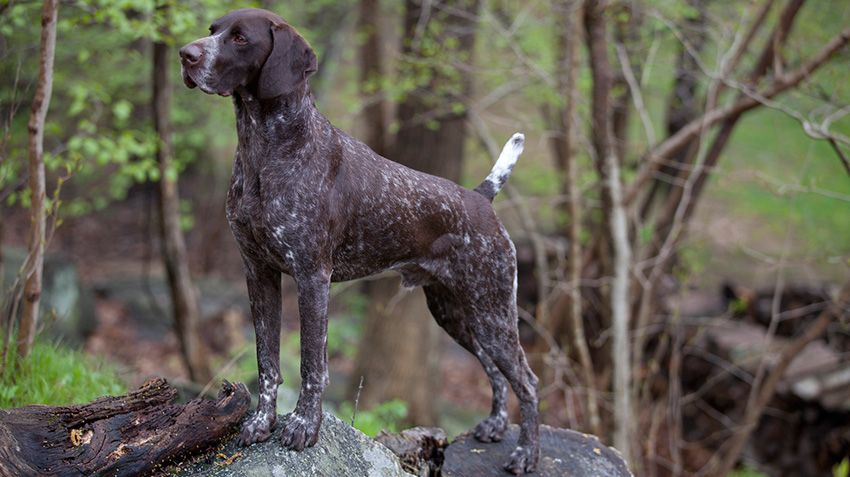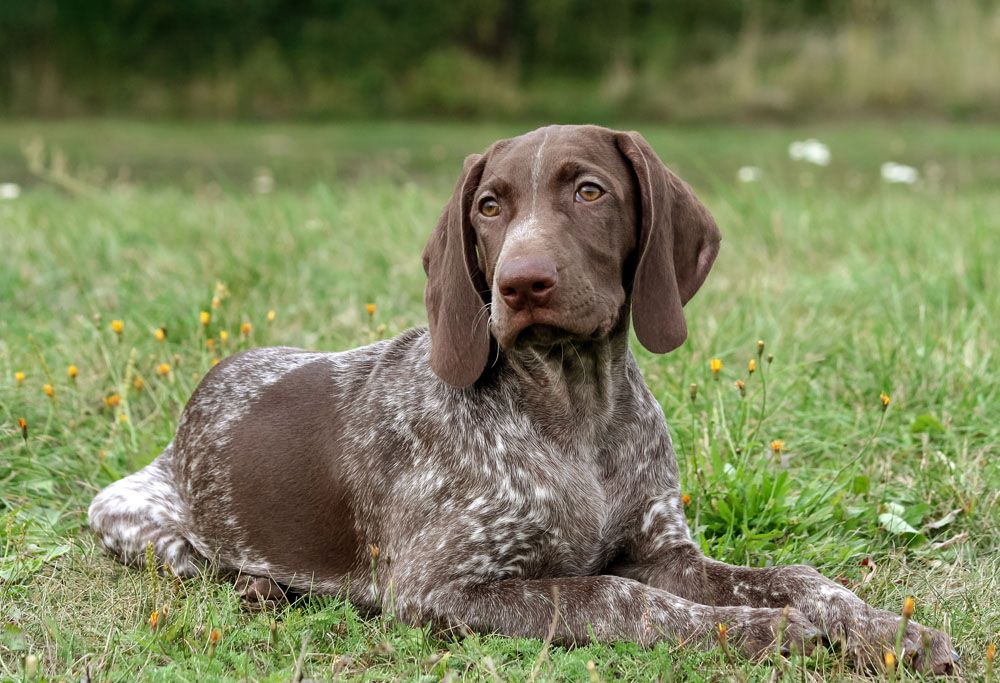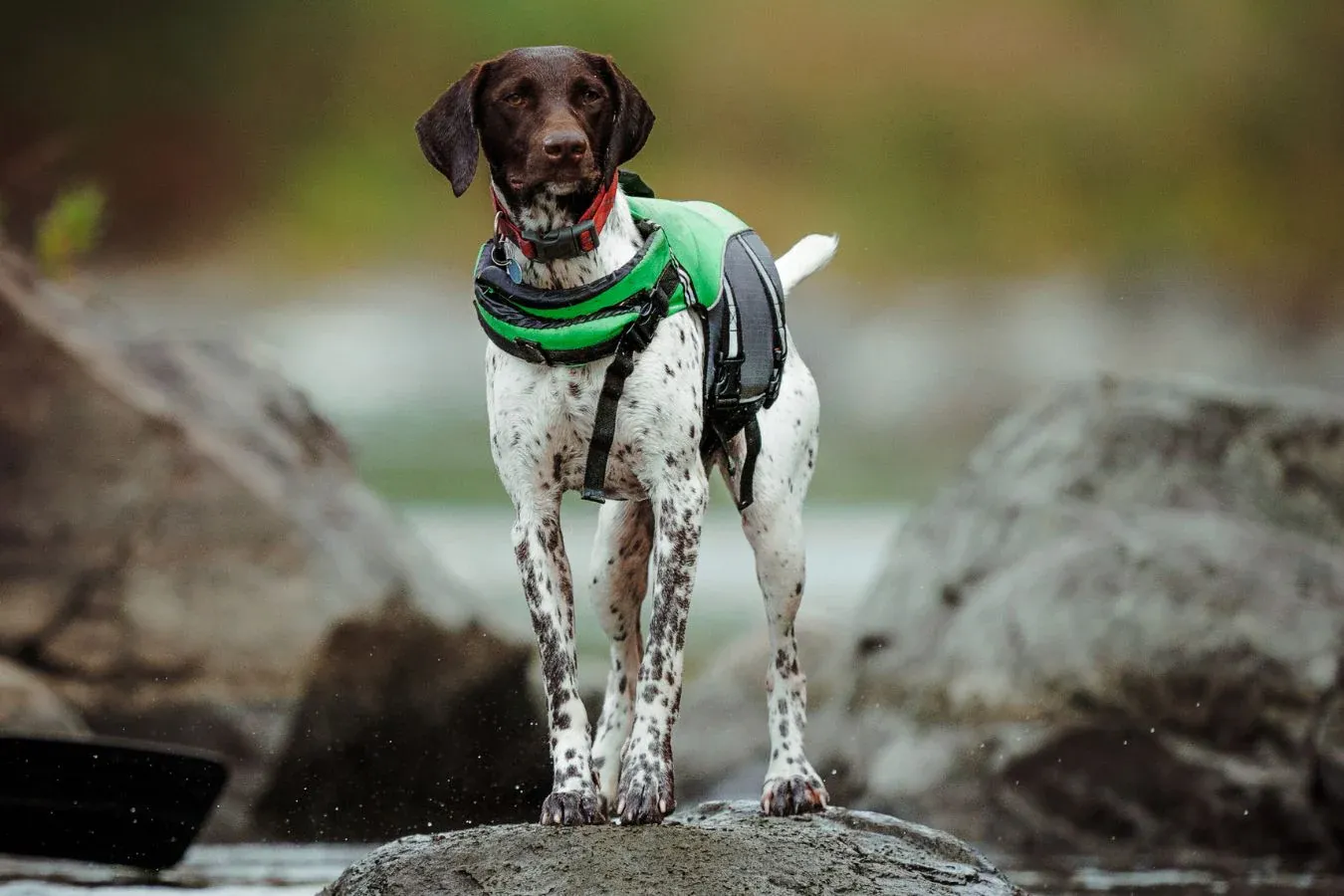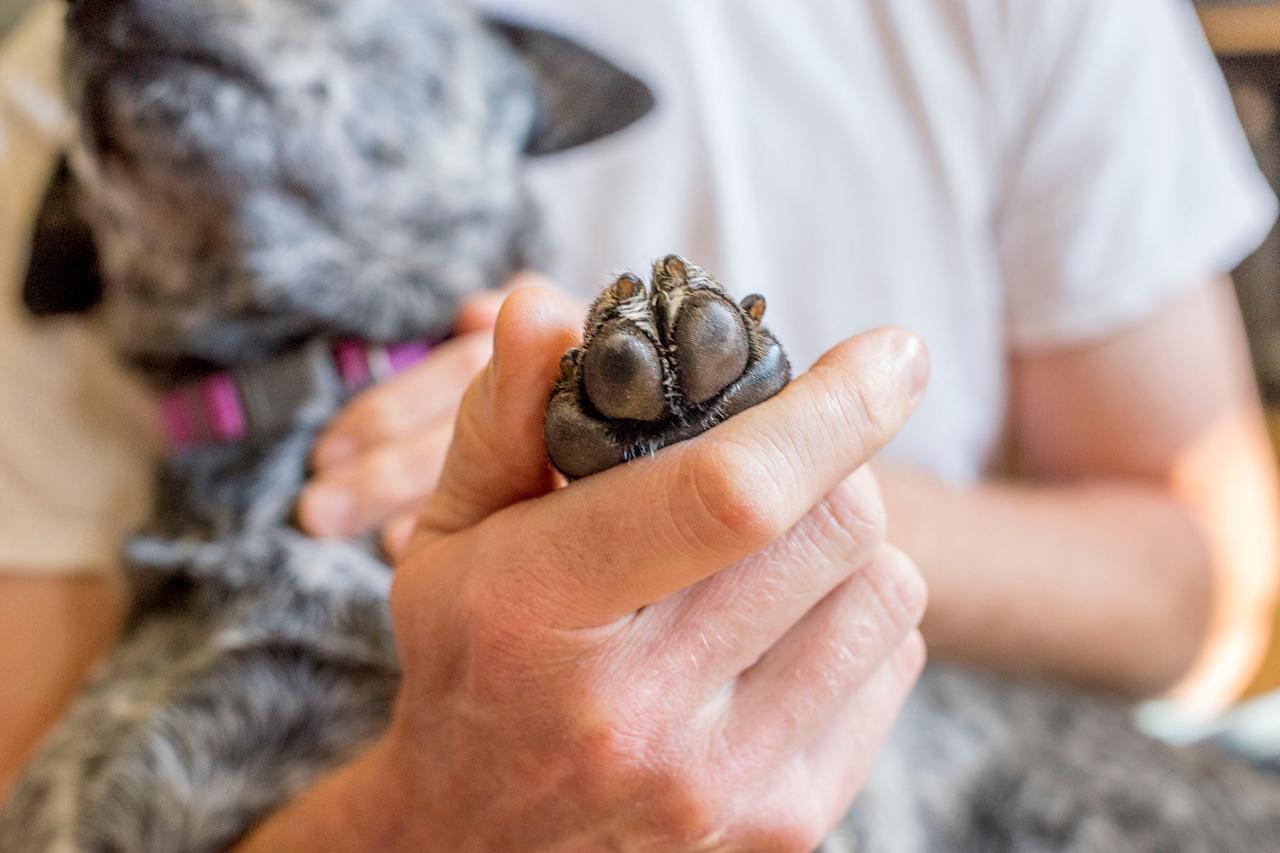Introduction: German Shorthaired Pointers, with their boundless energy and friendly demeanor, are beloved canine companions for many. One behavior that might puzzle owners is the tendency of GSPs to shake. In this article, we'll delve into the reasons behind this common behavior, exploring both physiological and psychological aspects.

Understanding GSP Behavior:
So, you've got this lively bundle of energy known as a German Shorthaired Pointer (GSP). They're charismatic, playful, and let's face it, they have a knack for shaking it off quite often. Now, why on earth do they do that? Let's unravel the mysteries behind GSP behavior, exploring both the physical and psychological aspects.
The Natural Instincts of GSPs
First things first, we need to acknowledge the roots of our dear GSPs. These hunt dogs are wired for hunting – it's in their DNA. That occasional shake? It's like a reflex from their hunting playbook. Think of it as their way of staying alert and ready for whatever adventure comes their way. It's a bit like a built-in reset button.
Exploring the Health-Related Causes
Now, let’s talk health. Dogs, just like us, have their off days. Sometimes, that shake might be a little hint from your furry friend that something isn't quite right. It could be an itch, discomfort, or even a subtle way of saying, "Hey, a visit to the vet wouldn’t hurt." Regular check-ups are like the superhero capes for our pets, keeping them in top-notch shape.

Stress and Anxiety in GSPs
Alright, onto the psychological side of things. Happy dogs, much like humans, can feel stress and anxiety. Your GSP might be picking up on the vibes around the house, or maybe they're just having one of those days. Think about it – we all have our moments, and so do our four-legged companions. Creating a stress-free zone and being that reassuring presence can work wonders.
Now, let's break this down a bit. Imagine your GSP is like a sponge. They absorb the energy around them, and sometimes that sponge needs a good squeeze. That shake might just be their way of letting go of any tension, like a mini stress-buster.
Remember, every GSP is unique. What works for one might not work for another. So, it's a bit of trial and error, a touch of intuition, and a sprinkle of patience.
Common Misconceptions:
So, you've got a German Shorthaired Pointer (GSP) who occasionally indulges in a good shake, and the neighborhood grapevine is buzzing with theories. Let’s set the record straight and debunk some common misconceptions about why our beloved GSPs shake.
Addressing Misconceptions
Misconception 1: Shaking means your GSP is always anxious. Nope, not necessarily. Shaking is a part of their nature, and it doesn't automatically translate to constant separation anxiety. GSPs are expressive creatures, and that shake might just be a way of releasing some built-up energy or excitement.
Misconception 2: All shaking is a sign of health issues. Hold on there. While it's true that excessive shaking might signal a problem, the occasional shake is often just your GSP's way of keeping things interesting. Regular vet check-ups are crucial, but not every shake is a cause for alarm.
Training and Socialization: The Building Blocks of a Well-Behaved GSP
Now that we’ve tackled some myths, let's talk about the powerhouse duo that can significantly impact your GSP's behavior – training and socialization.
Positive Reinforcement and Training
Training is not about turning your GSP into a robotic pet. Think of it more like teaching them the art of living harmoniously in the human world. Positive reinforcement goes a long way with GSPs. Reward good behavior, and you'll see less of those random shakes. It's a win-win.
Consistency is key. Imagine if every time you did something good, you got a treat. Sounds like a pretty sweet deal, right? GSPs think so too. Consistency in training helps them understand what's expected, and soon enough, those shakes might just become a thing of the past.
Socialization for a Well-Rounded GSP
GSPs are social butterflies. They love meeting new people, furry friends, and maybe the occasional butterfly. Socializing your GSP helps them understand the world around them, reducing stress and, you guessed it, potentially minimizing those shakes. Plus, who doesn't want a dog that's the life of the party?
Expose them to various environments. Take your GSP on adventures – from city streets to quiet parks. The more they experience, the less likely they are to feel overwhelmed, leading to a happier and less shaky companion.
Weather and Temperature Impact: Why GSPs React to the Elements
Ever notice your GSP shaking a bit more on chilly mornings or scorching afternoons? The weather plays a role in their quirky behavior.
Sensitivity to Weather Changes
GSPs are like furry meteorologists. They can sense changes in the weather before we even look at the forecast. Extreme temperatures might prompt a shake as they adapt to the environment. Providing shade on hot days and a cozy blanket on cold nights can make a world of difference.
Tips for Managing Shaking During Different Seasons. Invest in a doggy jacket for winter walks and consider a cooling mat for those hot summer days. Your GSP will thank you with fewer shivers.
In the grand tapestry of GSP quirks, debunking misconceptions, engaging in positive training, and understanding their weather-related antics all contribute to a happier and less shake-prone GSP. Remember, every wag, wiggle, and shake is a part of their unique personality. So, let's embrace it and continue on our GSP adventure.

Nutritional Considerations:
Now that we've uncovered the myths, delved into training, and weathered the elements, let's talk about a critical aspect of your GSP's well-being – nutrition. What goes into your GSP's bowl can have a profound impact on their overall health and, you guessed it, their propensity to shake.
The Link Between Diet and Behavior
Your GSP is what it eats. Okay, not literally, but nutrition plays a massive role in their behavior. A well-balanced diet contributes to a healthy, happy pup. Ensure your GSP's meals are packed with quality proteins, essential fats, and the right balance of nutrients. It's like serving them a gourmet meal every day.
Avoid the junk food equivalent for dogs. Just like we feel sluggish after a fast-food binge, your GSP might not be at its best with a diet filled with fillers and additives. Opt for high-quality dog food, and consider consulting your vet for personalized dietary recommendations.
Grooming and Comfort: Pampering Your GSP for a Shimmering Coat and a Calm Soul
Your GSP's coat isn’t just a fur cape; it’s a canvas that reflects their well-being. Grooming goes beyond aesthetics; it's about ensuring your GSP feels comfortable and content.
The Influence of Grooming on Behavior
Regular grooming is like a spa day. Imagine if you never brushed your hair – it wouldn’t be a pretty sight. GSPs, with their short coats, still benefit from regular brushing. It not only keeps their coat shiny but also provides a bonding experience between you and your furry friend.
Nail trims are non-negotiable. Long nails can be uncomfortable for your GSP and even affect their gait. Regular nail trims are a small but crucial part of their grooming routine. Plus, it prevents those accidental "ouch" moments.
Creating a Comfortable Environment for Your GSP
A cozy bed is a happy bed. While GSPs might have a reputation for being outdoorsy, they love a comfy spot indoors too. Provide a well-cushioned bed in a quiet corner. It's like offering them a personal sanctuary, and a calm GSP is less likely to be a shaky one.
Keep their living space clean. Regular cleaning not only ensures a pleasant living environment but also contributes to your GSP's comfort. A clean space reduces the likelihood of skin irritations and keeps those shakes at bay.
When to Seek Professional Help: Decoding Signs of Concern
So, you've covered training, weather, nutrition, and grooming. But what if those shakes seem a bit more than the usual quirky dance? That's when it's time to bring in the professionals.
Recognizing Signs of a More Serious Issue
Trust your instincts. If your GSP's shaking seems excessive or is accompanied by other concerning signs like lethargy, changes in appetite, or unusual behavior, it's time to play detective. Dogs can't speak our language, but their behaviors often tell a story.
Consulting a veterinarian is your best bet. Veterinarians are like canine detectives, equipped with the skills to decode what your GSP might not be able to express. Regular check-ups are preventive, but don't hesitate to schedule a visit if something seems off. It's always better to be safe than sorry.
Personal Experiences:
Welcome to the GSP Owners' Club, where every wag, every shake, and every goofy antic is a badge of honor. Let's dive into some personal experiences shared by fellow GSP enthusiasts – because who understands the quirks of a GSP better than those who live with them?
Real-Life Anecdotes from GSP Owners
Anecdote 1: The Morning Zoomies Ever wake up to your GSP doing laps around the living room like it's the Indy 500? Well, you're not alone. Many GSP owners report the infamous morning zoomies. It's like their way of saying, "Good morning, let's start the day with a bang!"
Anecdote 2: The Not-So-Stealthy Sniffer GSPs have an extraordinary sense of smell, and sometimes that curiosity leads to hilarious situations. One owner shared how their GSP tried to 'stealthily' sniff out treats in the kitchen, only to get caught with a trail of crumbs leading straight to their guilty grin.
Myths and Realities about GSP Shaking: Clearing Up the Confusion
We've covered some myths, but let's delve deeper into the world of GSP shaking and separate fact from fiction.

Dispelling Common Myths
Myth: GSPs shake only when scared. Reality check – GSPs shake for various reasons, not just fear. It could be excitement, anticipation, or simply a burst of energy. Don't assume fear every time your GSP does the shake dance.
Myth: Shaking is always a sign of health issues. Not necessarily. Occasional shaking is normal, but if it's excessive or accompanied by other concerning signs, that's when you want to consult your vet. Don't jump to conclusions – dogs have their quirky moments too.
Interactive Activities for GSPs: Because a Happy GSP is a Shaking GSP
Now, let's talk about keeping your GSP entertained and mentally stimulated. A bored GSP can be a shake trigger, so let's keep those tails wagging.
Engaging in Activities to Reduce Stress
Fetch with a Twist: Why just throw a ball when you can upgrade to a frisbee? GSPs love a good game of fetch, and a frisbee adds an extra element of excitement. It's like their own version of a canine Olympics.
Treat Puzzle Toys: GSPs are smart cookies. Keep them mentally stimulated with treat puzzle toys. It's a win-win – they get a mental workout, and you get to witness some impressive problem-solving skills.
In the world of GSPs, every owner has a story – a funny, heartwarming, or downright quirky tale of life with these spirited dogs. Personal experiences not only entertain but also provide valuable insights into the world of GSPs.
As we wrap up our journey through the GSP universe, remember that every shake, every zoomie, and every sniffer escapade is a testament to the unique and lovable nature of German Shorthaired Pointers. Cherish those moments, share your stories, and revel in the joy of having a GSP by your side.
Now, let's tackle the final stretch of our GSP adventure – "Conclusion" and a set of unique FAQs to cap off this journey. Because your GSP deserves all the love, understanding, and occasional head scratches in the world.

Conclusion:
In conclusion, understanding why German Shorthaired Pointers shake involves a multifaceted approach. Each GSP is unique, and a combination of factors contributes to their behavior. By addressing physical health, psychological well-being, and environmental factors, owners can create a harmonious relationship with their shaking but lovable GSP.
FAQs:
- Is it normal for GSPs to shake frequently?
- Shaking is a common behavior, but excessive shaking may indicate an issue. Consult your vet if concerned.
- Can training eliminate shaking behavior entirely?
- While training can reduce shaking, it's essential to understand and address the underlying causes.
- Do GSPs shake more in certain weather conditions?
- GSPs may shake more in extreme temperatures. Provide comfort and monitor their response to weather changes.
- How can I tell if my GSP's shaking is due to stress?
- Look for signs of stress, such as panting, pacing, or avoidance. Create a calm environment and consider professional guidance.
- Are there specific diets that can help with shaking behavior?
- Consult your vet for personalized dietary recommendations. A balanced diet contributes to overall health and behavior.






